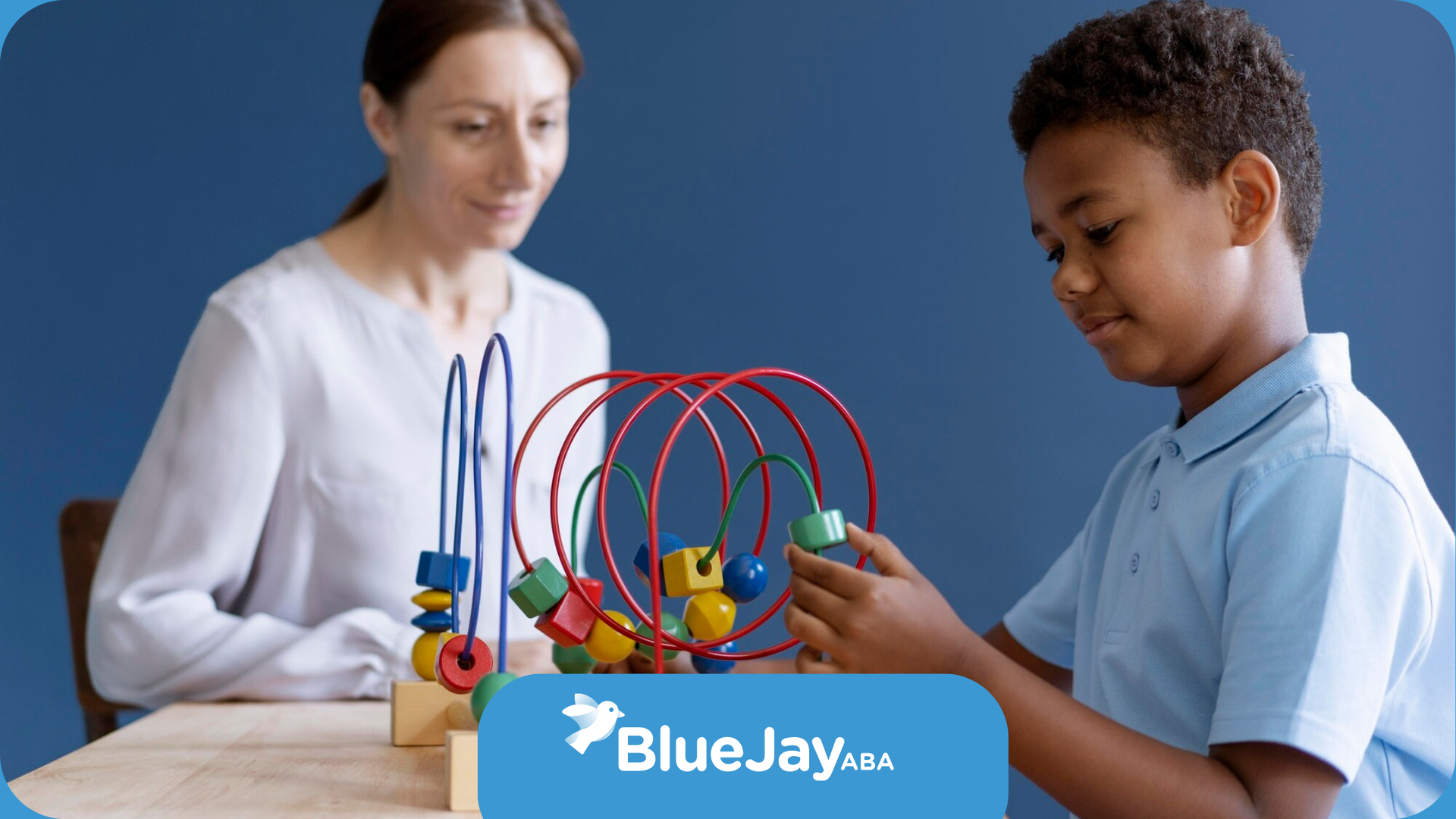What Age is Too Late for ABA Therapy?
When parents first hear about ABA therapy, it’s often in the context of early intervention. But what happens if a child starts later? Or if they continue needing support as they grow?
The good news is that ABA isn’t just about when you start—it’s about how it’s applied. Whether for a young child learning to communicate, a teenager navigating social situations, or someone building independence, ABA is designed to meet people where they are.
Let’s break down the myths surrounding ABA age limits and explore why it's never too late to start therapy.
Understanding ABA Therapy and How It Works
What is ABA Therapy?
ABA therapy is a structured, evidence-based approach that helps individuals develop meaningful skills while reducing challenging behaviors. It focuses on positive reinforcement, individualized learning plans, and data-driven progress tracking.
ABA therapy is widely known for helping those with Autism Spectrum Disorder (ASD), but it’s also beneficial for individuals with ADHD, anxiety, and other behavioral or developmental challenges.
Why Early Intervention is Recommended
Research shows that early intervention, especially before the age of four, can significantly improve communication, social skills, and independence. The brain is highly adaptable during early childhood, making it an ideal time to introduce ABA techniques. However, this doesn’t mean ABA loses its effectiveness as someone grows older.
Can Older Children, Teens, and Adults Benefit from ABA?
ABA Therapy for Older Children and Teens
As children grow, their challenges evolve. ABA therapy can help older kids and teens with:
- Social Skills: Learning how to engage in conversations, make friends, and navigate social settings.
- Emotional Regulation: Managing frustration, anxiety, and impulsivity.
- Executive Functioning: Improving organization, time management, and problem-solving skills.
- Independence: Developing daily living skills such as cooking, personal hygiene, and money management.
ABA Therapy for Adults
For adults, ABA focuses on practical life skills, workplace behaviors, and emotional regulation. Many adults with ASD seek ABA therapy to:
- Improve job-related communication and performance.
- Develop independent living skills.
- Manage sensory sensitivities and social anxiety.
- Enhance relationships and self-advocacy.
ABA for Aging Adults with Autism
Autism does not disappear with age, and older adults may experience new challenges, especially in employment, relationships, or daily routines. ABA therapy can help adults with:
- Adapting to life transitions, such as retirement or moving to a new environment.
- Managing anxiety and depression that can develop over time.
- Enhancing cognitive flexibility to navigate new social expectations.
- Maintaining independence and improving quality of life.
Debunking the Myth: "Is It Too Late for ABA?"
Myth: ABA Only Works for Young Children
✅ Truth: ABA therapy is effective at any age. While younger brains may adapt faster, individuals of all ages can develop new habits and skills through structured intervention.
Myth: Older Individuals Cannot Learn New Skills
✅ Truth: Neuroplasticity allows the brain to adapt throughout life. ABA therapy harnesses this ability to reinforce positive behaviors and develop essential life skills.
Myth: ABA Therapy for Adults is Rare
✅ Truth: Many ABA providers offer programs for teens and adults, focusing on career readiness, independent living, and relationship-building.
The Science Behind ABA at Any Age
How ABA Adapts to Different Age Groups
One of the strengths of ABA therapy is its adaptability. While younger children may focus on foundational skills like communication and self-regulation, teens often work on social development and problem-solving.
For adults, therapy shifts toward independent living, workplace skills, and emotional well-being. ABA is a lifelong tool that meets individuals wherever they are in their journey.
Neuroplasticity and Lifelong Learning
Science shows that the brain retains plasticity throughout life, meaning people can continue to learn and develop new behaviors at any age. ABA therapy leverages this adaptability, reinforcing positive behaviors and gradually replacing challenging ones.
This is why even adults and older individuals can experience significant benefits from ABA interventions.
Expanding Support Beyond Early Intervention
While early intervention is beneficial, ABA therapy extends beyond childhood. Schools, workplaces, and community programs increasingly integrate ABA-based techniques to help individuals with autism thrive in different environments.
Whether it's learning job skills, handling sensory sensitivities, or improving emotional regulation, ABA therapy remains relevant across the lifespan.
Conclusion
There is no "too late" when it comes to ABA therapy. While early intervention is ideal, individuals of all ages can gain life-changing skills through ABA therapy. Whether a child is learning communication skills, a teen is developing social confidence, or an adult is working on independence, ABA provides tailored, goal-oriented strategies to help them succeed.
At Blue Jay ABA, we believe that every child and teen deserves the opportunity to learn, grow, and thrive. Our compassionate, evidence-based approach is designed to help young individuals develop meaningful skills, build confidence, and navigate daily challenges.
If you think that your child could benefit from ABA therapy, contact us today to learn how we can support their journey toward greater independence and success!
FAQs
What is the best age to start ABA therapy?
The earlier, the better! Studies suggest that starting ABA before age four leads to the most significant improvements. However, individuals of all ages can benefit from ABA therapy.
Can ABA therapy help teenagers?
Absolutely! ABA for teens focuses on social skills, self-regulation, executive functioning, and transitioning into adulthood.
Is ABA effective for adults?
Yes! ABA therapy helps adults with autism and other challenges by focusing on job skills, independent living, and social interactions.
Sources:
- https://gsep.pepperdine.edu/blog/posts/aba-techniques-strategies-for-behavior-analysts.htm
- https://nationalautismcenter.org/autism-intervention-in-children/
- https://pmc.ncbi.nlm.nih.gov/articles/PMC7421097/
- https://pmc.ncbi.nlm.nih.gov/articles/PMC5639250/
- https://www.autismspeaks.org/expert-opinion/aba-teens
Need Assistance?
We’re Here to Help
Our expert team is ready to support your child’s development and well-being.
We are committed to offering tailored ABA therapy solutions that promote growth.
Contact us today for Professional ABA Therapy.
Related Posts
MENU
GET IN TOUCH
STAY CONNECTED
Join our newsletter and find out more
NewsletterFooter
We will get back to you as soon as possible
Please try again later








